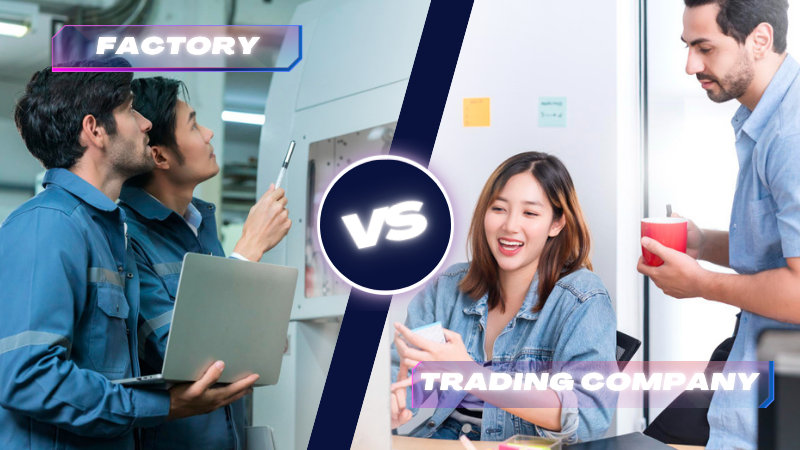Factory or Trading Company? How to Tell the Difference and Choose Right

When sourcing products from China, one of the most common questions international buyers ask is: Am I dealing with a factory or a trading company? It’s a simple question—but getting the answer wrong can lead to hidden costs, delays, or mismatched expectations.
As a sourcing agent based in Guangzhou with over a decade of experience, we’ve helped hundreds of global clients navigate this exact issue. In this article, we’ll break down the key differences between factories and trading companies, how to spot each, and how to decide which is right for your business.
First Things First: What’s the Difference?
A factory is a company that physically manufactures products. They usually focus on one category (like electronics, home goods, or textiles), and their strength lies in production capacity, pricing, and technical expertise.
A trading company, on the other hand, acts as a middleman. They buy from factories and sell to you. Some offer value-added services like mixed product sourcing, packaging, and export handling—but not all are transparent about their role.
How to Tell Who You’re Dealing With
Here are some practical tips we use to help clients verify whether they’re talking to a manufacturer or a trading company:
1. Check Their Business License
Every legal business in China must register with the government. A sourcing agent or trusted partner in China can help you verify if the license says "manufacturer" or “trading.”
2. Ask Detailed Technical Questions
Ask about production processes, materials, or certifications. Real factories can usually answer with specifics; trading companies may need to “check with the factory.”
3. Request a Factory Visit (Even Virtual)
Factories usually welcome on-site or video inspections. Trading companies might avoid this or offer a “shared” factory that they don’t own.
4. Review the Product Range
Factories often specialize in a narrow range. If the supplier offers phone cases and garden tools and LED lights—chances are they’re a trader.
5. Compare Prices and MOQs
Factories tend to offer lower prices but higher minimum order quantities (MOQs). Trading companies may offer flexibility but add their own markup.
When to Work with a Factory
a. You have clear product specs and want to control the production process.
b. You’re placing large volume orders and want the best price.
c. You have an in-house team or sourcing partner to manage communication and quality checks.
When a Trading Company Might Be a Better Fit
a. You’re sourcing a variety of products from different categories.
b. You need flexible MOQs or packaging services.
c. You prefer a one-stop solution for small to mid-size orders.
What About Sourcing Agents Like Us?
As a sourcing company based in China, we are neither a factory nor a trading company—we act on your behalf to connect you with the right suppliers, whether that’s a factory or a trading firm, depending on your needs.
Our team visits factories, negotiates prices, oversees production, handles quality checks, and arranges shipping. The goal? To help international buyers reduce risk, save time, and make confident purchasing decisions.
Final Thoughts: Choosing What’s Right for You
There’s no one-size-fits-all answer. Whether you work with a factory or a trading company depends on your product, budget, and expectations.
But here’s the bottom line: Knowing who you’re dealing with puts you in control.
If you’re unsure, a trusted local sourcing agent can help you verify suppliers, compare options, and manage the entire process—from inquiry to delivery.
Need help sourcing from China?
We’re happy to support your next project. Contact us at info@gz-brightfuture.com or visit www.gz-brightfuture.com to get started.